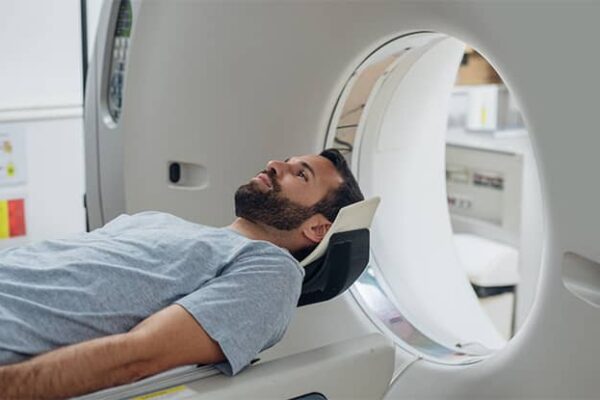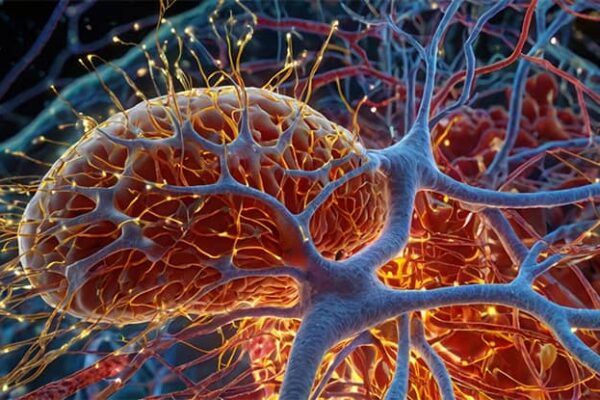Women’s Health is not only the physical condition of the body but also a complex system where physiological and psychological aspects are closely intertwined. Gynecological diseases, often perceived solely as a medical problem, actually have a profound impact on a woman’s emotional state, self-esteem, and overall quality of life.
Apraxia: Is it Possible to Restore Lost Motor Skills?
Apraxia is a neurological disorder that affects a person’s ability to perform purposeful movements, despite having intact motor functions and understanding of the task. This condition can significantly complicate daily life, impacting such simple actions as dressing, using utensils, or writing. In this article, I will examine in detail the causes of apraxia, its types, […]
Withdrawal Syndrome: Psychological and Physical Aspects You Need to Know
Withdrawal Syndrome is a complex of physical and psychological symptoms that arise when the use of psychoactive substances, to which dependence has developed, is stopped or sharply reduced. This phenomenon can affect people who are stopping the use of alcohol, drugs, certain medications, and even refraining from certain types of food or activities.
When to get an MRI: Psychological Indicators for Medical Examinations
Magnetic Resonance Imaging (MRI) is a powerful diagnostic tool that allows doctors to obtain detailed images of internal organs and body structures. This method is widely used to detect various diseases and pathological conditions. However, the decision to conduct an MRI is not always based solely on physical symptoms. Increasingly, medical specialists consider psychological factors […]
Rituals of Cheerfulness: How Coffee Improves Psychological State
In today’s world, where the pace of life is constantly accelerating and stress has become an inseparable part of daily life, people increasingly turn to various methods to maintain their psychological well-being. Among the many methods, coffee holds a special place—a drink that has long ceased to be just a source of caffeine. For millions […]
Asthenic Syndrome: What is Hidden Behind Constant Weakness
Asthenic Syndrome — a condition characterized by increased fatigue, weakness, and decreased work capacity. It is a common phenomenon in today’s world, where the fast pace of life, stress, and information overload have become the norm. Statistics show that approximately 20-30% of the population experiences some form of asthenia.
Parkinson’s Disease: How to Respond to Symptoms?
Parkinson’s disease is a progressive neurological disorder that affects movement, balance, and coordination. It impacts millions of people worldwide, and while there is no cure yet, an appropriate response to symptoms can significantly improve patients’ quality of life. In this article, I will explain how to recognize Parkinson’s disease symptoms and respond to them effectively.
Clean Water – Clean Thoughts: The Psychological Benefits of Hydration
Water is the basis of life on our planet, playing a critical role in the functioning of every cell in our bodies. When we talk about hydration, we mean the process of saturating the body with water to maintain optimal water balance. Most people understand the importance of water for physical health, yet often overlook […]
Psychoenergetics of Massage: Restoration of Internal Balance
Psychoenergetics is a complex system that integrates aspects of psychology and energy dynamics, influencing a person’s physical and emotional well-being. In the modern world, maintaining inner balance is becoming increasingly important given the high levels of stress and fast-paced lifestyle. One effective method for restoring harmony between body and spirit is massage. Massage affects not […]
How Not to Be Afraid of the Dentist: A Psychological Guide to Overcoming Dental Phobia
Stomatophobia, or fear of the dentist, is a common issue preventing many from regular dental visits. This can lead to severe dental and oral health problems.
Psychosomatic Echo: How Ultrasound Reveals Secrets of Body and Mind
Psychosomatics is the study of the connection between a person’s mental and physical states. Often, stress, emotional overload, and other psychological factors lead to physical illnesses. Modern medicine offers new diagnostic methods that help reveal these connections. One such method is ultrasound diagnostics, which not only detects physical problems but also unveils psychosomatic aspects.
Agnosia: When the Familiar Becomes Strange. Lost Fragments of Reality
Agnosia is a neurological disorder in which a person loses the ability to recognize or identify objects, people, or sounds despite normal sensory function. The term “agnosia” comes from the Greek words “a-” (negation) and “gnosis” (knowledge), literally meaning “lack of knowledge” or “non-recognition.”
Psychological Infertility: Modern Methods of Treatment
Infertility is an issue affecting millions of couples worldwide. According to data from the World Health Organization, approximately 15% of couples of reproductive age face difficulties conceiving. Among the various forms of infertility, a significant one is psychological infertility, a condition in which there are no physiological barriers to conception, yet pregnancy does not occur […]
The autonomic nervous system: mechanisms and functions
The autonomic nervous system is part of the nervous system responsible for controlling and regulating the body’s internal organs and systems, including the heart, breathing, digestion, and blood circulation, without conscious involvement. It is divided into the sympathetic and parasympathetic systems, which work together to maintain homeostasis and adapt the body to changes in the […]
Rebirthing: a method of transforming consciousness
Rebirthing is a unique technique aimed at deep consciousness transformation and healing of psychological trauma. This method, based on a special type of breathing, attracts those seeking alternative paths to personal growth and self-awareness. Rebirthing offers a fresh perspective on the potential of human consciousness and body, promising liberation from deeply rooted emotional blocks and […]














